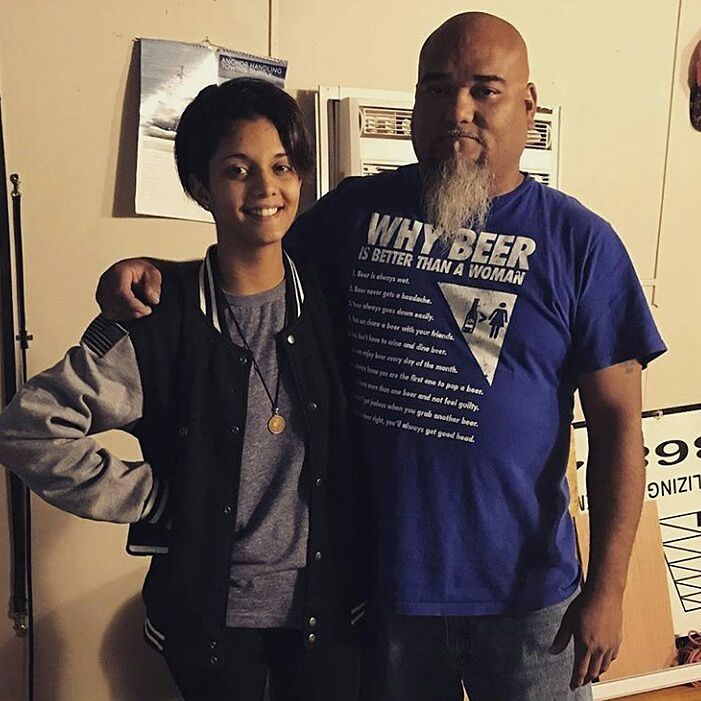McGuire showcases himself at Combine
March 7, 2017
Pilot mourned by fellow airmen
March 7, 2017Louisiana State Police are investigating the fatal shooting of a Houma man by city police last week to determine whether officers acted lawfully, as his family grieves and raises questions nobody yet has answers to.
No information has surfaced to suggest criminal wrong-doing on the part of officers, which is what the State Police probe is limited to.
But the case raises important questions about the Houma Police Department’s failure to communicate initial information, despite a marked trend toward increasing transparency in such situations nationally, and a local track record of open communication in the past.
Experts in law enforcement crisis communications maintain with uniformity that local police departments must have such protocols in place. The ubiquitous nature of social media allows misinformation to spread rapidly if facts – or such facts as can be reasonably released – do not fill the information vacuum.
“Withholding necessary information undermines trust in the community,” said Stephen Handelman, director of the Center on Media, Crime and Justice at John Jay College of Criminal Justice in New York City, a think tank devoted to developing and encouraging high-quality reporting on criminal justice and law enforcement.
What has been confirmed with the State Police is that Houma officers were called to 154 Agnes St. at around 7 p.m. Feb. 28, Mardi Gras Day, regarding a disturbance. Police encountered a barricaded 43-year-old Jose Olivares.
For reasons that are not explained in any of the sparse information released, Olivares was shot and killed. Reporters have pieced together a mosaic, relying largely on accounts from witnesses and family members, as well as anonymous law enforcement sources, to fill the void.
Early news reports about the case did not include key information, of the type media experts familiar with law enforcement need in crisis situations say would not have interfered with the ongoing investigation, but which are needed to maintain trust, and to lay a foundation for information that will eventually come be disclosed in greater detail.
Among important elements missing from public statements, confirmed through interviews with law enforcement officials who could not be publicly identified, as well as with Olivares’ loved ones:
* Olivares was armed with a shotgun
* Blasts were fired from inside the trailer toward the outside.
* At least two police officers were hit by shot during the incident.
* Less-lethal options were used in an attempt to contain and control Olivares.
* Police negotiators may have spoken with Olivares by telephone, a point disputed by family.
Although it has not made its way to social media, cell phone video of the shooting is allegedly in the hands of one family member.
“I called the Sheriff’s Office and his mom called the police and I think his cousin Destiny called the cops,” said Roxanne Griffin, who identified herself as Olivares’ girlfriend of three years. “He was flipping out. He had got like that before.”
Olivares, Griffin and relatives said, had not taken prescribed psychiatric medication for about a month.
Earlier in the day Olivares and Griffin had attended the Krewe of Houmas Mardi Gras parade with Griffin’s children. They caught the parade near Stadium Drive, then moved on to catch it again on Barrow Street, near NAPA auto parts. Olivares was initially in fairly good spirits, Griffin said, drinking Heineken beers and Jell-O shots.
They left the parade route early, however, dropping off the children with relatives.
“Then when we got back in the vehicle he started talking about his mom who passed away and said ‘I want to be with my mom,’” Griffin said.
By the time he got to the trailer Olivares’ distress continued, Griffin said, adding “his father came to check up on him.”
Born in Galveston, Olivares has lived in Houma, Dulac and Michigan, has no history of having been incarcerated at the Terrebonne Parish jail.
“Joe was awesome,” Griffin said. “He loved me and loved my kids.”
Family members were trying to make sense of being in the uncomfortable position of calling for help because they fear for the safety of a disturbed loved one, only to have the call for help have a fatal result.
“They were only called because we thought that they could help not kill him,” said a cousin, Lawanda Lynn Ray. “He was not trying to harm anyone, he never threatened them, he was depressed and then got scared when they surrounded the house and put snipers up. He was scared.”
Ray’s contention was present in a Times story within a day of the shooting. Crucial details including the fact that officers were hit by shot were not confirmed – and then only with police sources needing to remain anonymous – on Monday.
Police Chief Dana Coleman was contacted by The Times by text at 9:21 p.m. on Feb. 28, about an hour after the shooting.
He confirmed that an individual had been killed. In response to a question as to whether officers were “okay” he responded in the affirmative. A short time later, in response to deeper questions, Coleman said the case had been turned over to the Louisiana State Police and that they would answer all questions.
A State Police spokesman, Trooper Jesse LaGrange, issued a statement reading “this is an active investigation and our investigators and crime lab will ensure that all the facts are gathered. Once the investigation is complete, the findings will be turned over to the Terrebonne Parish District Attorney’s Office.”
The name of the officer who did the shooting, along with information as to whether more than one officer fired, has not been released.
Since the State Police are doing the investigation, seasoned law enforcement professionals are not surprised the agency is not releasing further information, especially since the shooting did not involve their officers.
Local agencies like HPD are in no way barred from releasing information about a case in which one of their officers has taken a life, so long as the information does not jeopardize the investigation, even if – as in this case – another agency is performing the probe.
“They need to release as much information as possible to the public,” said Jerome Boykin, president of the Terrebonne Parish NAACP, who has had close communications with law enforcement agencies in other officer related shootings. “The community should be informed of what is going on, the community needs to know. I think a situation where the information is not brought forward quickly enough, that’s the reason a lot of times people in the community don’t have the trust they should have in law enforcement. I think if law enforcement can get on top of a situation and release the information, they need to release it so long as they are not jeopardizing their case.”
Among communications experts contacted for comment for this article was Russell Ruffin, author of “The Media Insiders’ Public Information Officers Guide: Media Relations for Public Safety Professionals, Vol. I, and “Media Survival: Media Relations for the Public Safety Professional.”
Ruffin has conducted training for law enforcement officers throughout the country.
“The danger of them not doing it is that people get their information from social media,” Ruffin said, expressing surprise that officials have kept secret the fact that officers were hit by shot. “At least if they put that out there the public would have sympathy if they found out about it.”
Ruffin has consulted for the Ferguson, Mo. Police Department following its national attention in connection with the 2014 shooting of Michael Brown, which led to civil unrest.
“In Ferguson the police didn’t do anything wrong,” Ruffin said. “They did not get their story out to the public. In fairness to the police, after all the criticism police are reluctant to push out information for fear of being demonized in the public, because there is so much negative national coverage. But on the other hand you have got to get that information out there as quickly as possible or you lose the direction of the story. Whoever people get their information from is the direction the story is going to take. The national media has portrayed law enforcement in a negative light, so they are damned if they do and damned if they don’t and they are reluctant. But it’s important that they put it out there as soon as possible.”
The International Association of Chiefs of Police makes this recommendation, given the amount of attention an officer-involved shooting is likely to garner.
“The agency’s public information officer should remain at the staging area to manage media representatives and provide them with information as available and appropriate,” an IACP guide for police agencies, published last year, reads. “The department should provide basic information regarding the incident to the press as soon as practicable, assuming it will not inhibit or undermine the investigation. Doing so will discourage the press from speculation or uninformed commentary that could be detrimental to the involved officer and the agency alike. However, it is important to exercise caution in releasing any information at the scene prior to a full investigation.”
A plus in the police column locally is that several officers at HPD are trained in crisis intervention and hostage negotiation. There is no affirmative way of knowing if their expertise was used Tuesday night, however.
A check of officer involved shootings in Terrebonne Parish going back five years indicates that law enforcement executives at HPD and the Sheriff’s Office have been transparent – albeit to varying degrees – when police have had to use deadly force to its ultimate end.
Meanwhile, as state police investigate, Olivares’ loved ones try to cope.
“We are devastated with my father’s loss,” said daughter Osanna Craig-Olivares, who lives on the Mississippi coast. “He loved life and he was always happy and he should still be here. We’re all wishing we had one more day. We’re all wishing he would walk through the door and say it was a prank. We love him and we’ll never forget him and we’ll always honor his life and his sacrifices, faults and all.”











